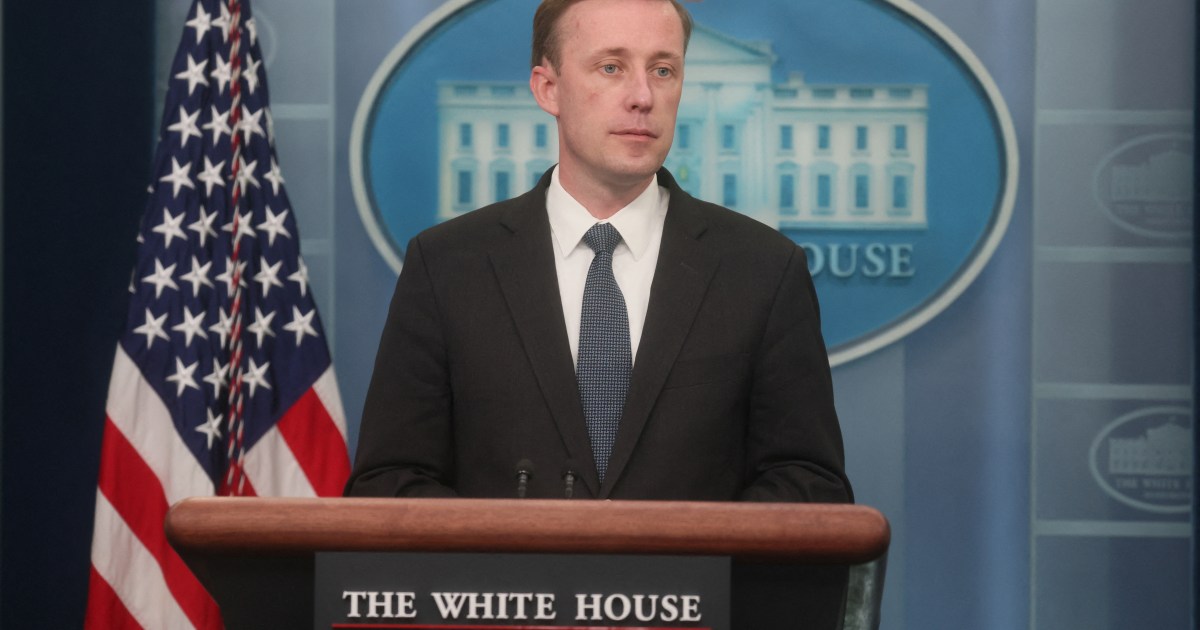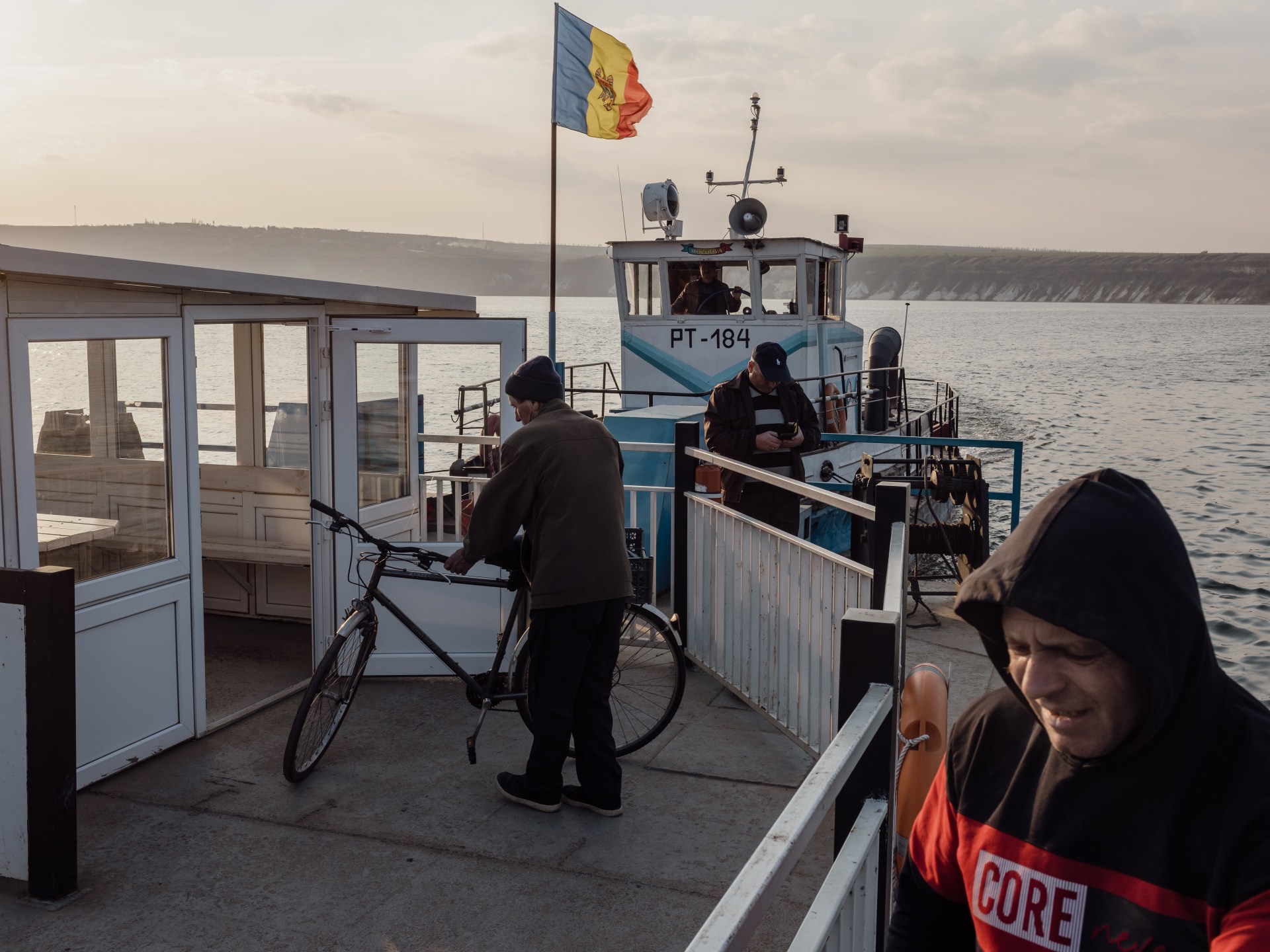Russia has ‘failed’ to achieve objectives in Ukraine, US says
Russia has failed to achieve its goals in Ukraine, US National Security Adviser Jake Sullivan has said, warning that despite the apparent Russian setbacks, the war will not end “easily or rapidly”.
Speaking from the White House on Tuesday, Sullivan said Russia had set three objectives for itself when it started its “unprovoked” invasion: subjugating Ukraine, enhancing Moscow’s power and prestige, and dividing the West.
“Russia has thus far manifestly failed to accomplish all three objectives. In fact, it has thus far achieved the opposite,” said Sullivan, adding that “brave” Ukrainians have refused to submit to Russian forces.
“Although Russia may take more territory in these brutal military operations, it will never take the country away from the Ukrainian people.”
Still, Sullivan predicted that the violence will get worse in the near future. “There will be hard days ahead in Ukraine – hardest for the Ukrainian troops on the front lines and the civilians under Russian bombardment,” he said.
Despite US assertions that Russia’s invasion is stalling, President Vladimir Putin recently stressed that the war was unfolding “successfully, in strict accordance with pre-approved plans”.
Sullivan’s comments on Tuesday came as US President Joe Biden headed to Europe to reinforce unity with Washington’s allies and to coordinate their response to the Russian invasion. White House Press Secretary Jen Psaki will not join the trip after testing positive for COVID-19.
Biden will first travel to Brussels to attend an emergency NATO summit on Thursday, and he is also expected to meet with G7 leaders and address the European Union at a session of the European Council, Sullivan said.
“He will join our partners in imposing further sanctions on Russia and tightening the existing sanctions to crack down on evasion and to ensure robust enforcement,” Sullivan told reporters. He also said Biden will announce “joint action” to reduce Europe’s dependence on Russian gas.
Biden banned Russian oil and gas imports in the US earlier this month, and several European countries, much more dependent on Russian supplies than the US, also pledged to move towards more energy independence.
The US president will then visit Poland, where he will hold talks with President Andrzej Duda and meet with US troops stationed in the country, Sullivan said.
US Vice President Kamala Harris met with Duda in Warsaw on March 10, downplaying a controversy involving Poland’s offer to transfer Russian-made jets to Ukraine via a US base in Germany. The US rejected that proposal, saying it risked escalating the conflict, but stressed “unity” with its NATO allies, including Poland.
The US president has repeatedly pledged to defend “every inch” of NATO territory. The alliance has a collective defence pact that states an attack on one member is considered an attack on all. Ukraine has been seeking NATO membership but is not a member of the US-led bloc.
Russia launched its all-out invasion of Ukraine on February 24 after a months-long standoff that saw Moscow amass troops near the Ukrainian borders as Putin demanded an end to NATO expansion into former Soviet republics.
The US and its allies were quick to impose sweeping sanctions on the Russian economy, as well as financial penalties on the Russian president and elites in his inner circle.
The war has pushed more than 3.5 million people to flee Ukraine, according to the United Nations, as Russian forces continue to besiege and bombard Ukrainian towns and cities.
On Monday, the US Department of Defense joined the Department of State and the White House in accusing Russia of committing “war crimes” in Ukraine.
Biden had angered the Kremlin when he called Putin a “war criminal” last week, prompting Russia to summon the US ambassador in Moscow and warn that the relationship with Washington is on the verge of “rupture”.
Asked on Tuesday about Putin’s grip on power in Moscow, Sullivan said, “From our perspective, what happens with respect to the Russian political system is something that will be worked out inside Russia.
“What we can do is put forward our basic three lines of effort. That’s what we’re doing: helping the Ukrainians defend themselves, fortifying the NATO alliance and imposing costs and consequences [on Russia],” he said.




